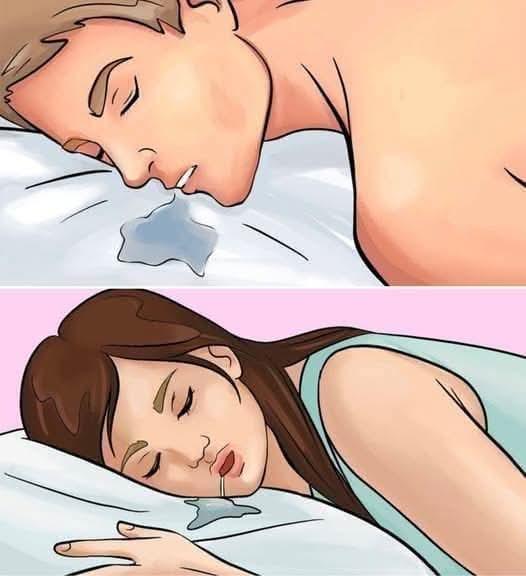🤕If you drool while sleeping, it is a sign that your brain… See more

🤕If you drool while sleeping, it is a sign that your brain… See more

Drooling while sleeping is a common occurrence for many people. While it might seem like a simple issue, it can actually be a sign of something deeper related to your brain’s health and body functions. Here’s a deeper look into what drooling during sleep can mean.
First, it’s important to understand that drooling is the result of excessive saliva production or an inability to swallow it properly while asleep. One of the most common reasons for drooling while sleeping is related to the position of the head and body during sleep. When a person sleeps on their side or stomach, gravity can cause saliva to escape from the mouth. However, if drooling occurs regularly, it could be a sign of underlying conditions related to your brain’s function.

When the brain isn’t effectively signaling the muscles responsible for swallowing, the saliva may not be swallowed properly, leading to drooling. This could be caused by conditions such as sleep apnea, neurological disorders, or even certain medications that affect the body’s ability to control muscles during sleep. For example, Parkinson’s disease and other neurological conditions can impair muscle control, including those involved in swallowing, leading to an increase in drooling during sleep.

In some cases, excessive drooling could also be linked to relaxation of the facial muscles, which happens when the body reaches a deep stage of sleep. This muscle relaxation can sometimes reduce the ability to close the mouth properly, resulting in drooling. Stress and anxiety may also contribute to such occurrences, as they can disrupt normal sleep cycles.

If you or someone you know experiences frequent drooling while sleeping, it’s worth considering lifestyle changes or seeking medical advice. Identifying any underlying health issues early on can ensure better management of the condition, promoting better quality sleep and overall well-being.
Disclaimer: This article provides general information and should not be considered as medical advice. Always consult a healthcare professional for accurate diagnosis and treatment.